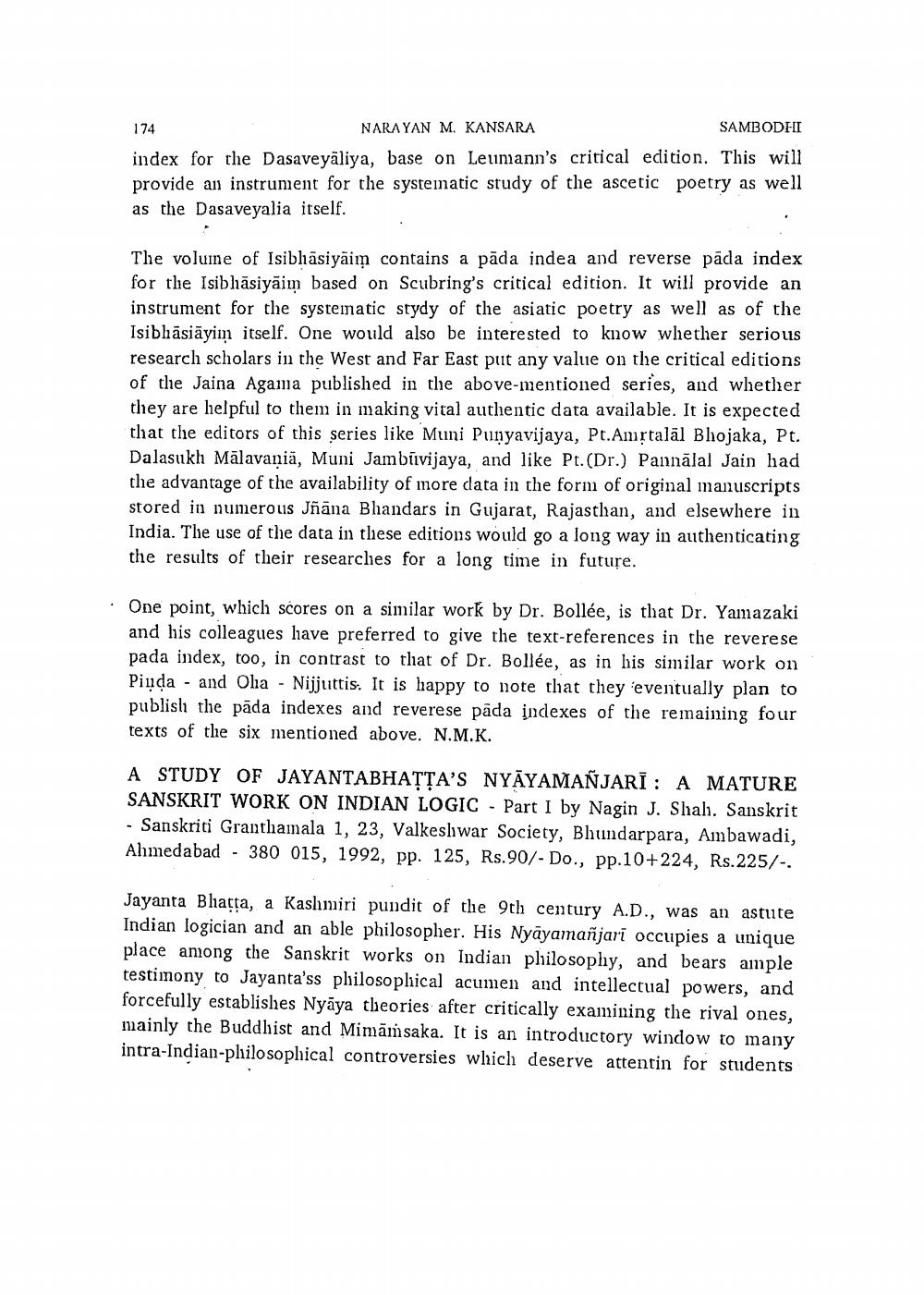________________
174 NARAYAN M. KANSARA
SAMBODHI index for the Dasaveyaliya, base on Leumann's critical edition. This will provide an instrument for the systematic study of the ascetic poetry as well as the Dasaveyalia itself.
The voluine of Isibhāsiyāim contains a pāda indea and reverse pada index for the Isibhāsiyāim based on Scubring's critical edition. It will provide an instrument for the systematic stydy of the asiatic poetry as well as of the Isibhāsiāyim itself. One would also be interested to know whether serious research scholars in the West and Far East put any value on the critical editions of the Jaina Agama published in the above-mentioned series, and whether they are helpful to them in making vital authentic data available. It is expected that the editors of this series like Muni Punyavijaya, Pt.Amộtalál Bhojaka, Pt. Dalasukh Mālavaņiä, Muni Jambivijaya, and like Pt. (Dr.) Pannālal Jain had the advantage of the availability of more data in the form of original manuscripts stored in numerous Jñāna Bhandars in Gujarat, Rajasthan, and elsewhere in India. The use of the data in tliese editions would go a long way in authenticating the results of their researches for a long time in future.
One point, which scores on a similar work by Dr. Bollée, is that Dr. Yamazaki and his colleagues have preferred to give the text-references in the reverese pada index, too, in contrast to that of Dr. Bollée, as in his similar work on Pinda - and Ola - Nijjuttis. It is happy to note that they eventually plan to publish the pāda indexes and reverese pada indexes of the remaining four texts of the six mentioned above. N.M.K.
A STUDY OF JAYANTABHATTA'S NYAYAMANJARI: A MATURE SANSKRIT WORK ON INDIAN LOGIC - Part I by Nagin J. Shah. Sanskrit - Sanskriti Granthamala 1, 23, Valkesliwar Society, Bhundarpara, Ambawadi, Ahmedabad - 380 015, 1992, pp. 125, Rs. 90/- Do., pp.10+224, Rs.225/-.
Jayanta Bliatta, a Kashmiri pundit of the 9th century A.D., was an astute Indian logician and an able philosopher. His Nyāyamañjari occupies a unique place among the Sanskrit works on Indian philosophy, and bears ample testimony to Jayanta'ss philosophical acumen and intellectual powers, and forcefully establishes Nyāya theories after critically examining the rival ones, mainly the Buddhist and Mimämsaka. It is an introductory window to many intra-Indian-philosophical controversies which deserve attentin for students




